Archive for the ‘iBeacon’ tag
Digital Publishing Innovation Summit, Part 5

“Contextual shopping is coming…” Epicurious has partnered with Target to use iBeacon for in-store advertisement and coupon deployment
Carolyn Kremins of Epicurious was the fifth speaker on day two. She began by presenting data on the rise of mobile, however advertisers have not figured out how to reach mobile users. The same banner ads that work on the desktop are employed on mobile, however they do not work on the mobile platform. Generally, when people click them, it’s by accident. She did point out that native apps can be highly successful as the Epicurious App demonstrates – #1 in food and lifestyle, 450k sign ups for recipe box in first six weeks and people spend 28 minutes per user over the last month. Due to the nature of mobile, Kremins feels that the future of mobile advertisement is in in-store engagement. Apps that present content – information and coupons when the shopper is walking through a store.
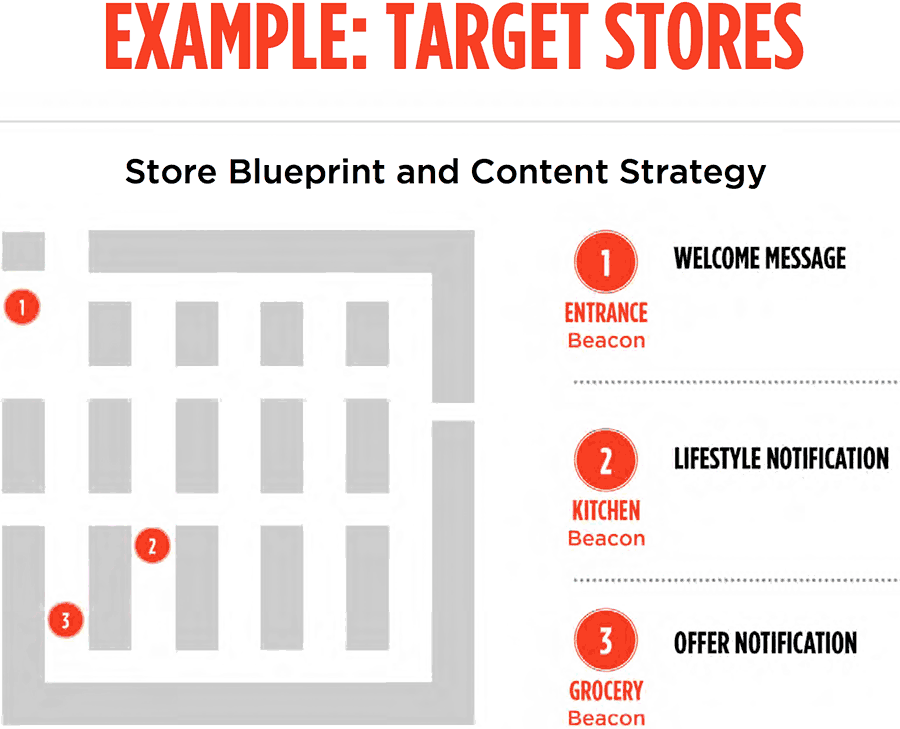
In-store advertisement deployment via app on smart phone
Kremins went on to discuss mobile geo-targeting via iBeacon as the future of shopping. Epicurious has partnered with Target to launch this emerging form of advertising. iBeacon uses blue tooth to connect with the phone app. The iBeacons will be strategically placed throughout the store to present a series of messages from a Welcome message upon entering, a lifestyle message and then an offer notification. Studies show that 2/3 of consumers are okay with marketers using online behavior and information to personalize ads. Hence a personalized shopping experience is likely to be a boon. Rather than receiving unwanted ads randomly upon opening an app, the app will launch at the appropriate time to present useful deals at the moment of shopping. Kremins stated that “contextual shopping is coming. Users are 19x more likely to engage an ad and 16.5x to use an Ad in store and a satisfied user is 6.5x likely to keep the app. The key to Ads is to present a value to users and create transparency of opting-in. The value of the perpetually connected shopper can not be underestimated.
Laura Kenney of YouBeauty.com followed Kremins. The primary point of Kenney’s presentation “What a Difference Your Data Can Make” is the effective use of quizzes to gather data on their users and spin the data into personalized content. She used the term “Information Diet” coined by Clay Johnson in referring to the YouBeauty.com website as the plate, and the content the nourishment. Users engage with the personalized and favorite content first followed by the desert content. Kenney feels that appropriate uses of quizzes can make websites into data machines. Quizzes may be used to connect users with brands while presenting personalized valuable information to the user.
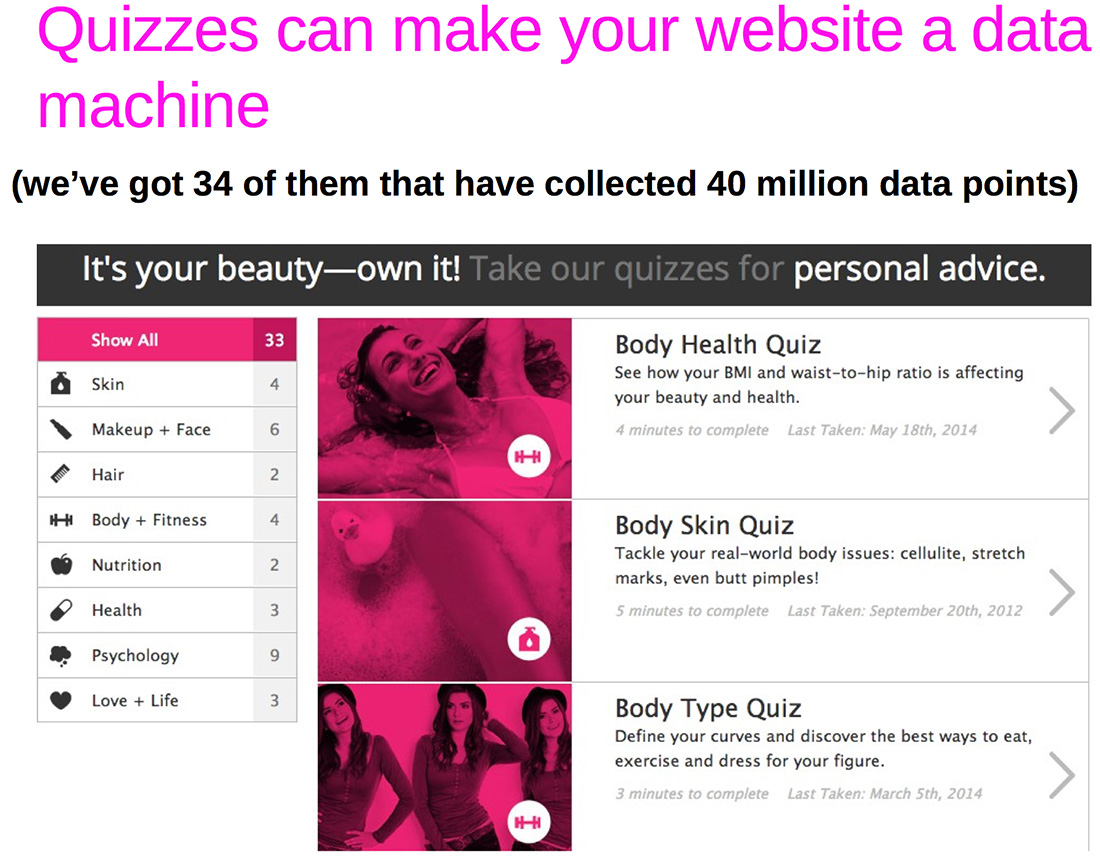
YouBeauty.com employs quizzes to present personalized content to its users and to connect users with appropriate brands.
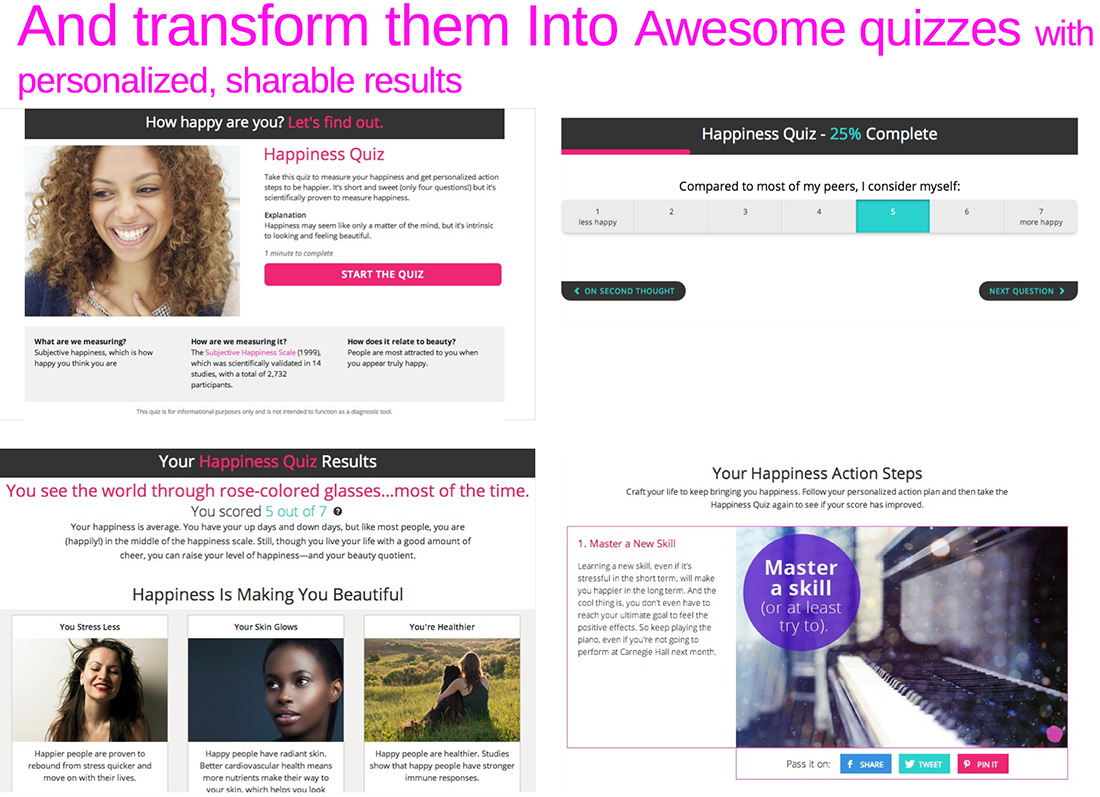
YouBeauty.com makes quiz taking fun and presents the data collected in a useable format.
YouBeauty.com knows that their readers are obsessed with body shape, personality, attachment style, lipstick and healthy hair. This insight is a tool to organize and present a successful website. A key to YouBeauty.com’s quizzes has been making quizzes fun to take and useful for the reader to see the quizzes output. Of course as with all these brands, YouBeauty.com has uses with social applications and referred to Pinterest as a “slow burn” whereas FB is a quick spike.
Kenney did warn of too much information and the need to use refined data metrics to understand what information is useful and what works on the site and to get rid of what is not working.
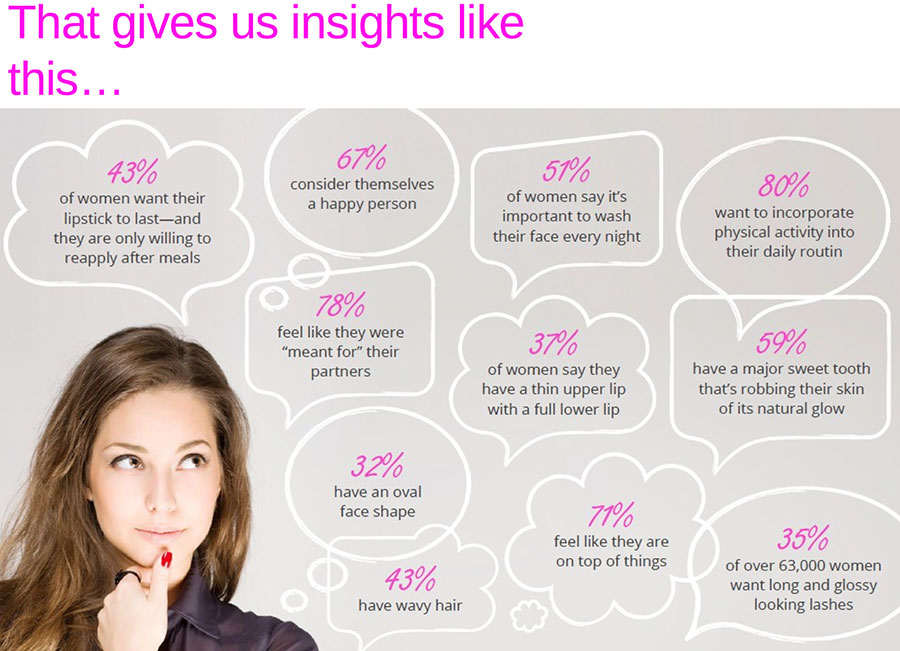
Through the quizzes, YouBeauty.com knows its users.
Following YouBeauty.com founder was Tim Clark, senior director of digital media for NASCAR. Clark began by describing failure and the understanding that people do not like change regarding their interfaces. What has worked for NASCAR is “competition based storytelling…” people like to consume drama. The effective formula for NASCAR is:
Quality Consumption = (60% Scroll Page Views + Video Completes) / Visits
This is not merely landing on a page or clicking on a video and viewing the beginning, but actually tracking the depth of consumption for pages as well as videos. Clark identified the peak hours for user spikes as 8am, noon and 6:30pm.
Following NASCAR was Angela Tribelli of Harper Collins. She discussed the transformation of Harper Collins from being “disinter mediated” between themselves and the reader to becoming a platform that connects their authors with the consumers. She broke down 5 myths about book publishing and the ones that I found most interesting are the last three: 1. “Media consumers have short attention span,” 2. “Only fresh content sells – consumers always want what’s next,” 3. “Self publishing will put an end to traditional publishing.” And in response to these myths, Tribelli presented these realities:
- Amongst the top sellers for Harper Collins last year were Veronica Roth’s Divergent series. Each book is approximately 500 pages. Consumers desire immersive reading.
- Regarding “only fresh content” there is an enduring backlist of opportunities, because the classics sell. Amongst the lasting top sellers are The Alchemist, 1988, Brave New World, 1932, To Kill a Mockingbird, 1960, Their Eyes Were Watching God, 1937.
- And regarding the last myth, although self-publishing presents a great opportunity to new writers, Harper Collins value proposition can not be matched, as demonstrated in the image below.
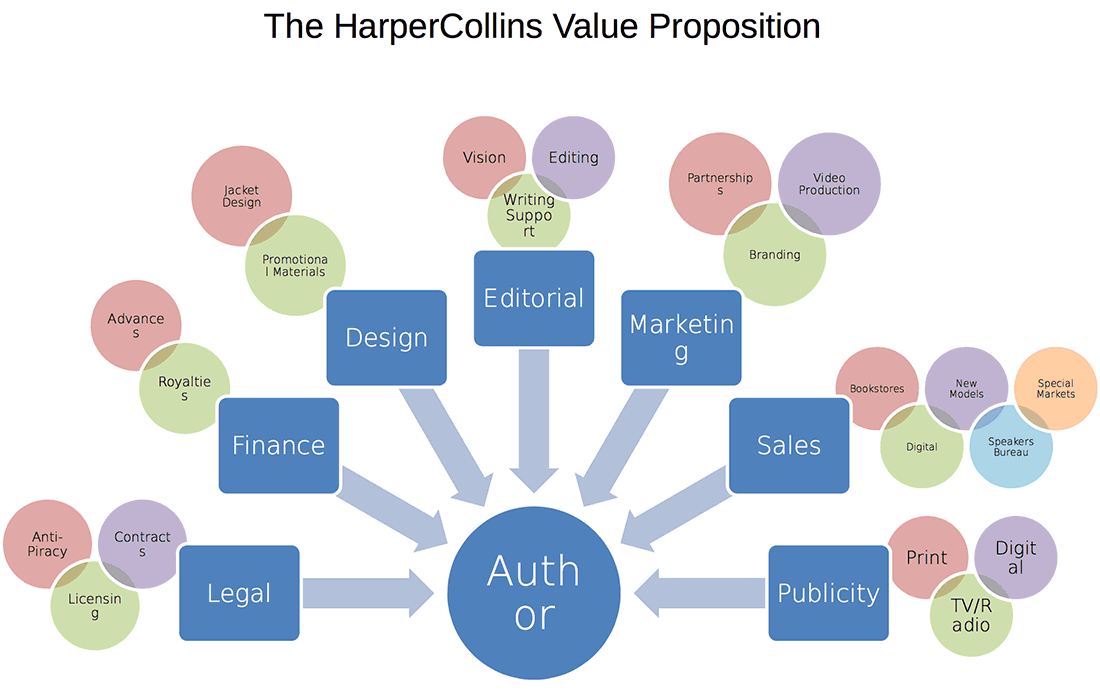
Self publishing can not match HarperCollins value to its writers.
Tribelli sited finding the right audience as the biggest challenge for publishers today, because publishers have traditionally been “disinter mediated.”